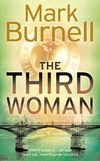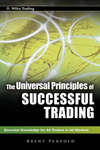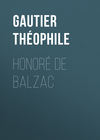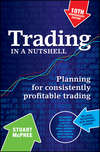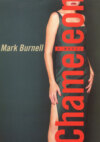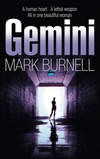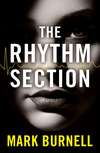Kitabı oku: «The Third Woman», sayfa 2
Orange juice and coffee arrived. Peltor ordered scrambled eggs and bacon, Petra stuck with fruit and croissants. She said, ‘You running into me at Café Roma yesterday …’
He took his time, sipping coffee, playing with the teaspoon on the saucer. ‘Yeah. I know.’
‘And?’
He struggled for an answer, then looked almost apologetic. ‘All my adult life, I’ve had my finger on a trigger, Petra. First for my country, then for my bank balance. In that time, I’ve been the best there is. We both have. Different specialities, same environment. But nobody knows what we do. We have to lie to everyone. We can’t relax. That time at JFK – we were just a couple of business colleagues shooting the breeze in an airport lounge. A few stories, a few drinks. It was nice. But I didn’t think I’d get the chance to do it again. Then yesterday … there you were.’
‘A coincidence?’
‘I hope so.’
‘Someone I used to know said that a coincidence was an oversight.’
He sat back in his chair and held open his hands. ‘Shit, it happens, you know? You’re walking down a street somewhere – Osaka, Toronto, Berlin – and some guy calls out your name. When you turn round there’s a face you haven’t seen since the fourth grade back in Austin, Texas.’
‘Is that where you grew up?’
‘Never let your defences down, do you?’
‘Never.’
Peltor held up his hands in mock surrender. ‘Look, I saw you in Café Roma. I could’ve walked away but I didn’t. That’s all there is to it. I just thought we could talk again like we did in New York. You know, take a time-out. If you’re uneasy with that … well, then I guess you’ll leave.’
But she didn’t. Perhaps because she’d enjoyed JFK too. Taking a time-out, talking shop. Relaxing.
Peltor’s eggs and bacon arrived. The waitress poured Petra more coffee. The restaurant was mostly empty, the businessmen long gone, just four other tables occupied, none of them too close.
Gradually, they drifted into conversation. Nothing personal, not at first. They talked about Juha Suomalainen, a Finnish marksman whom Peltor had always regarded as a rival rather than a kindred spirit. Petra asked whether he was still active.
‘I doubt it. He’s been dead for six months.’
‘Who got him?’
‘Husqvarna.’
‘I don’t know the name. Sounds Nordic.’
‘Husqvarna make chainsaws.’
‘I’m not with you.’
‘Juha was at his home in Espoo. Up a ladder, cutting branches off a tree. Somehow he fell and the chainsaw got him. And before you ask, I was in Hawaii with a drink in my hand.’
Petra pulled apart a croissant. ‘Well, statistically speaking, this is a risky business. You just don’t expect any of us to go like that.’
‘Right. Like Vincent Soares. Cancer. Wasn’t even forty-five.’
When Peltor talked about his time as a Marine, Petra was surprised to learn that he wasn’t the rabid jock-patriot she’d suspected he might be, although he admitted to missing the comradeship. But not much.
‘This is a lot better. Like owning your own business, know what I mean? You work hard but you got no boss busting your ass.’
As far as Peltor was concerned, she’d always been Petra Reuter, the anarchist who turned assassin. Originally, however, Petra had been created by an organization. And controlled by that organization. Petra was an identity handed to Stephanie. A shell to inhabit. And in those days there had been a boss. A man who had regulated every aspect of her life. But as time passed, flesh and fabric had merged and Stephanie had become Petra. Or was it the other way round? In any case, Petra had outgrown her fictional self. Now, both the organization and the boss were consigned to her past while Petra Reuter was more of a reality than she had ever been.
Peltor ate a piece of bread roll smeared with butter and marmalade. Petra waited for the predictable reaction: the grimace. He picked up the small marmalade jar.
‘Look at this, will you? Look at the colour. Way too light. Like dirty water. Too much sugar, not enough orange. And no bitterness. Marmalade doesn’t work unless there’s a trace of bitterness.’
When he wasn’t killing people Peltor liked to make marmalade. The first time she’d discovered this she’d laughed out loud. Later, when she thought about it, it simply reinforced a truth: you can never really know someone.
‘You still getting the same kick out of it?’ she asked.
When they’d last met, Peltor had explained what drove him on: the quest for perfect performance. It all comes down to the shot, Petra. Last contract I took was nine months from start to finish. All of it distilled into half a second.
There was no longer any trace of that enthusiasm. ‘To be honest, I’m not sure I’ll take another contract.’
‘That surprises me.’
‘I’m kinda drifting into something new right now.’ He tugged the lapel of his jacket. ‘Something … corporate.’
‘That surprises me more.’
‘It shouldn’t. You know the way the math works. I’ve had my time at the plate, Petra. And if you don’t mind me saying so, so have you.’
‘If you don’t mind me saying so, I’d guess you’re a decade older than me.’
It was more like fifteen years, but technically Petra was older than Stephanie.
‘It’s not about age. It’s about time served.’
She reduced her indifference to a shrug. ‘I’m touched by your concern.’
‘Don’t outstay your welcome, Petra. Most of the assholes out there – I couldn’t give a rat’s ass if they get wasted. But I like you. You got class. Don’t be the champ who doesn’t know when to quit.’
‘When it’s time, I’ll know.’
‘Bullshit. The people who say that never know. Know why? Because the second before they realize it, they find their brains in their lap.’
‘I’ll try to remember that.’
‘Just do it. Retire. Or shift sideways like I have.’
‘What is this venture, then?’
‘Consultancy I’d guess you call it. First-class travel, expense accounts, places like this. I swear, there are corporate clients out there – the biggest names – ready to pay a fortune for what we have up here.’
Petra watched him drum a finger against the side of his head and said, ‘Not quite the double-tap I’ve come to associate with you.’
‘Funny girl. Seriously, though, you can name your price. They pay off-shore, share options, anything you want.’
‘Now I’ve heard it all.’
‘You’re not too young to think about it, Petra.’
‘It’s not that.’
‘No?’
‘No.’
‘So what is it?’
‘You know perfectly well. It’s obviously already happened to you. But it hasn’t happened to me. Not yet.’
‘What are you talking about?’
‘The moment.’
Peltor’s evangelism sobered into silence and she knew she was right.
She said, ‘The moment you know. But before that moment … well, you don’t just retire from this life, John. You know that as well as I do. It retires you. Sometimes after just one job.’
Beyond the recognition, she thought she detected a hint of regret in his voice when, eventually, he said, ‘Damned if you’re not right, Petra. Damned if you’re not right.’
Stephanie was still thinking about Peltor’s e-mail and the meeting that had prompted it back in September when her taxi pulled up beside the church of Notre Dame du Sablon. When Albert Eichner had told her that he was coming to Brussels to take her to lunch, she’d been faintly amused by his choice of restaurant. The exterior of L’Écailler du Palais Royal was the essence of discretion; premises that were easy to miss, the name lightly engraved on a small stone tablet beside the door, net curtains to prevent inquisitive glances from the street. As the chairman of Guderian Maier Bank in Zurich, these were qualities that Eichner appreciated more than most.
He was at a table towards the rear of the restaurant, a solid man with a physique that had defeated his tailor. When she’d first met him his thick head of hair had been gun-metal grey. Now it was almost as white as his crisp cotton shirt. Each cuff was secured by a thick oval of gold. On his left wrist was an understated IWC watch with a leather strap.
Stephanie was wearing the only smart outfit she now possessed, a black Joseph suit with a plain, cream silk blouse. Chic and conservative, just the way she suspected she existed in Eichner’s imagination. As she approached the table he rose from his chair.
‘Stephanie, as beautiful as ever.’
Eichner was one of the few men Stephanie had entrusted with her original given name. As for the surname with which he was familiar – Schneider – that had been her mother’s.
A waiter in a blue tunic poured her a glass of champagne.
She said, ‘How long are you in Brussels, Albert?’
‘A friend of mine lent me his Bombardier. I flew here from Zurich this morning. I have to get back for a family engagement this evening.’
‘I’m flattered.’
‘Don’t be. You’ve earned it.’ He raised his glass. ‘To you, Stephanie. With our sincerest gratitude.’
It was three months since Otto Heilmann’s death. She smiled but said nothing. Eichner was right to be grateful. In the past, she’d saved him from personal disgrace and in return he’d consented to become her banker. This time, however, the entire institution had been under threat. In the first week of September, Eichner had implored her to come to Zurich. An emergency, he’d said. An emergency that threatened Guderian Maier. He’d let her fill in the blank spaces.
An emergency that threatens your arrangement with us.
Otto Heilmann. One of the very few to have become rich during the era of the GDR. Heilmann had links with Guderian Maier going back to the Seventies. When Stephanie had asked what kind of links, Eichner had reddened.
‘In those days, my uncle ran this bank. In the same way that he did when he first ran it back in the Forties.’ He’d paused to let her dwell on this, the gravity in his voice suggesting the subtext. ‘We do things differently these days. Heilmann doesn’t understand that. He’s of the opinion that a bank like ours will accept anyone’s money providing there is enough of it.’
‘I assume you’ve explained that this isn’t the case.’
‘As politely and as firmly as possible.’
‘But he’s not dissuaded?’
‘Unfortunately, no.’
‘Distressing.’
‘We can’t possibly be associated with an arms-dealer.’ When Stephanie had raised an eyebrow at him, Eichner had qualified himself. ‘Not like Heilmann. It’s simply out of the question. You know the kind of clients we have. The very idea of it is just too … appalling.’
‘I’d have thought your stand might have worked in your favour.’
‘On one level, possibly. But there’s something else. When the Stasi disintegrated, Heilmann headed to Russia and took what he needed with him. Information for his own protection, information for profit.’
‘Let me guess. You refuse him and he’ll find a way to incriminate the bank, tying it to the crimes of the Stasi.’
‘He won’t find a way. He has a way.’
‘The sins of the past …’
The traffic on Bahnhofstrasse and the ticking of the carriage-clock on the marble mantelpiece had provided the soundtrack to a moment of awkward truth.
Eventually, Eichner had said, ‘As I have already explained to you, Stephanie, we don’t behave that way any more.’
‘Yet you have me as a client.’
He’d smiled lamely. ‘The point is, my generation and the next generation have gone to great lengths to restore some honour to a very noble heritage. Despite that, if we had to, we would be prepared to face the potential humiliation he’s threatening. But it’s gone beyond that now.’
He’d slid a photograph across his desk. Stephanie had recognized Eichner at the heart of the gathering, his wife sitting to his right. A family portrait, the faces of their seven grandchildren scratched out by a sharp point.
‘Hand-delivered to this office last week. Six people in the bank have received similar material. Including my secretary.’
She’d told him not to worry. And when he’d raised the subject of her fee, she’d refused to discuss it. Consider it a gift, she’d said. From one friend to another.
Now, four months after that conversation, Eichner looked five years younger. ‘Shall we share a bottle of something good? The seafood here is fantastic but I hope you won’t be offended if we drink red wine. From memory, they have a very fine Figéac 93 but I think we’ll go for something a little better.’
He ordered for both of them, Iranian caviar with another glass of champagne, followed by grilled turbot and a bottle of Cheval Blanc 88. When they were alone again, he said, ‘That place you used to live – that farm in the south of France – remind me where it was.’
Her heart tripped. ‘Between Entrecasteaux and Salernes.’
‘Were you aware that it’s for sale?’
How many years was it since she’d been there? Four, perhaps? It felt longer. She’d rented it. The owner had been a German investment banker stationed in Tokyo. It was a beautiful place, a little run-down, terraces rising behind the house, olives, lemons, a vineyard falling away to the valley below, the house itself afloat on clouds of lavender bushes. She’d picked it as somewhere to hide from the world and had never wanted to leave.
‘The directors and I have discussed this and – with your permission, naturally – we have decided to acquire the property.’
Stephanie frowned. ‘I don’t understand.’
‘For you. As a token of our gratitude.’
‘I told you in Zurich that I would deal with Heilmann for free.’
‘Exactly so. And we would like you to view this gesture in the same spirit. Consider it a gift. From one friend to another.’
She reached across the table and took his hand. ‘Thank you, Albert. That’s so sweet of you. But I’ll need to think about it.’
‘Is that you, Petra?’
Ten-to-eleven. When the call came, she was sitting on the living-room floor, sorting through Marianne’s domestic bills, listening to Bright Red by Laurie Anderson. The track ‘Tightrope’ was on repeat.
Roland doesn’t know me as Petra. That was her first thought, quickly followed by another: it’s not his voice.
‘Who is this?’
‘Jacob Furst.’
Out of the blue. Or, to be accurate, out of the past.
Furst took her silence incorrectly. ‘You don’t remember me?’
‘Of course I remember you.’
Furst was an old man – in his late eighties now, she guessed – with each year etched into the timbre of his voice. Not surprising, given the life he’d led. And now she recognized the strangely distinct sound of that voice too; high and quavering, almost feminine.
‘I apologize for calling you like this but I need to see you. It’s urgent.’
Another thought was forming; this was Marianne’s mobile phone. How had Furst obtained the number? Through Cyril Bradfield, perhaps, a mutual friend. Stephanie felt Petra taking over, concern making way for pragmatism. ‘Where are you?’
‘Paris.’
Where Furst lived, so far as she knew. ‘I’m going away tomorrow but I’ll be back …’
‘Where are you?’
She felt Petra’s reflex, her mobile had a German number. Did Furst imagine she was in Germany, or did he know that she was in Belgium?
‘I’m right … here.’
He seemed to understand. ‘Could you be in Paris tomorrow?’
‘I could be just about anywhere tomorrow.’
‘I would never have called you if I’d thought there was an alternative but …’
From what she remembered of Furst, that much was true. ‘What is it?’
‘I can’t say,’ he whispered. ‘Not over the phone.’
‘Can it wait?’
The pause undermined the lie that followed. ‘For two or three days, maybe.’
Stephanie pictured Furst; a small man with a crooked frame and surprisingly large hands. Miriam, his wife, was taller and broader.
‘Tell me this: is it the same as last time?’
His reply was barely audible: ‘Almost.’
Almost?
She said, ‘I can’t promise you anything.’
‘Will you try?’
No. Instinctively, that was what she felt. Petra hated situations like this. Unsolicited, unprepared. But there would be no easy escape here. There was a barrier in the way constructed of obligation and sentimentality.
‘One o’clock. If I’m not there by half-past, I’m not coming. Shall I come to your home?’
‘No.’
‘Where?’
‘The place we first met. Do you remember it?’
Day Two
My carriage is almost empty on the Thalys train service from Brussels-Midi to Gare du Nord in Paris. Belgian countryside scrolls smoothly across my window at high speed, flat and brown beneath a grey sky, ploughed fields speckled with small woods and copses. The tops of the electricity pylons are lost in low, rolling cloud.
A woman in a dark red uniform pours me more coffee. In an hour I’ll be in Paris. In four, I’ll be hurtling through this same stretch of countryside in the opposite direction. In twelve, I’ll be at thirty-five thousand feet, heading for the Indian Ocean.
I’m not sure what I can achieve while I’m with Jacob Furst but I’ll manage something. Furst is a man with a fierce sense of honour; the kind of man to squirm under obligation. And he will feel obligated towards me, no matter how hard I try to persuade him not to be. The truth is, my debt of obligation is greater.
For almost sixty years Furst was one of the great document forgers. A gifted painter from childhood, he was faking masterpieces for wealthy clients by the time he was twenty. At the outbreak of the Second World War, he turned his talents to a more practical purpose, forging documents to help Jews fleeing Nazi persecution. Later, he joined the Resistance, creating papers for SOE agents dropped into France between 1942 and 1943, before his eventual capture. He survived for two years at Auschwitz. After the war, he developed the trade in forged documents for profit, protected by the legitimate screen of the family garment business.
He retired from his art – art being exactly what he considers it – in 1995 when the arthritis in his fingers began to affect the quality of his work. Over the years, Furst passed on his expertise to a small handful of apprentices. One of them was an Irish art student who was studying in Paris during the 1960s. His name was Cyril Bradfield.
Cyril has been creating independent identities for me as long as I’ve been Petra Reuter. In that sense he knows me better than any person alive. In the perverse way that logic works in my world, it seems appropriate that he’s the closest thing I have to a parent; after all, he’s fathered so many of me.
Cyril feels for Jacob Furst the way I feel for him. Which is why the only time he’s ever asked me for help was when it was on Furst’s behalf. It wasn’t a complicated situation, just undignified; an elderly man and his wife threatened by a crooked landlord and his troop of Neanderthal thugs.
That was four years ago and it was the only time I spent with Jacob and Miriam Furst. But we formed a bond. A bond that feels as strong today as it did then. It’s no exaggeration to say this: without Furst, there would have been no Cyril Bradfield for me, and without some of his documents, I’d probably be dead. But the reason I’m going to Paris is that I liked Furst. If I think of Cyril as a surrogate father it’s easy to think of Jacob and Miriam as surrogate grandparents. With some people, you don’t need time to make the connection; it just happens. Often, when you least expect it.
Twelve-fifty, boulevard de Sébastopol in Sentier. Stephanie dropped euro coins into the driver’s palm and climbed out of the taxi. Despite the hard rain, she wanted to walk the last bit. She entered rue Saint Denis from rue Réaumur and it was how she remembered it; clothes shops and garment wholesalers along either pavement, the road itself a narrow artery clogged by double-parked vans, their back doors open, rolls of fabric stacked for delivery. And noise everywhere; bleating horns, music, the rain, half a dozen shouted languages. At the intersection with rue du Caire a dozen Indian and Bangladeshi porters were loitering with trolleys, waiting to be summoned. In the doorways and alleys were the whores; oblivious to the weather, the wrong side of forty, sagging breasts and bloody make-up done no favours by the dismal daylight.
Stephanie entered Passage du Caire, an arcade of cramped passages with filthy glass overhead, and came to the place where the Fursts’ family business had once been. Part of the sign still hung above the door, the red plastic letters faded to dirty pink. The window was crammed with mannequins; beige females with no heads or arms. A piece of paper pasted to the glass offered fifty percent discounts for bulk orders.
Four doors down was La Béatrice, the kosher café where Cyril Bradfield had introduced Stephanie to Jacob Furst. Seven tables with magnolia Formica tops, a selection of snacks laid out behind a glass counter, fluorescent tubes taped to sagging ceiling panels, one of them hanging loose. On the wall beside the espresso machine was a large wooden framed photograph of George Clooney next to a smaller frame containing a certificate bearing the words ‘Shin Beth de Paris’.
There were half a dozen people in the place. Mostly from the arcade, she guessed; none of them were wet. Stephanie recognized Béatrice, a haughty-looking woman with dyed black hair. She ordered a cappuccino and took it to a vacant table by the small circular staircase leading to the upper floor. Béatrice fiddled with the portable radio on the counter until Liane Foly was singing ‘Doucement’. In the café’s wet warmth, Stephanie caught a whiff of cinnamon.
One o’clock came and went. So did Béatrice’s customers. Stephanie noticed a man who seemed vaguely familiar; slim, tall, well dressed, in his fifties with the same dark blonde hair she’d had as Krista Jaspersen. He was sitting at a table near the staircase. She couldn’t pin a name to the face but wondered whether she might have seen him on TV.
At one-fifteen her mobile rang.
‘Petra?’
‘Jacob?’
‘Where are you?’
The high-pitched voice sounded more tremulous than usual.
‘I’m where you should be. Unless my memory’s going.’
He didn’t reply straight away and she regretted her sarcasm.
‘I apologize, Petra.’
‘Where are you? I don’t have long, Jacob.’
‘Fifteen minutes, okay?’
‘Okay.’
‘You’ll stay?’
‘Of course.’
‘Good. Two minutes, then …’
He finished the call and Stephanie sat there for a moment trying to remember something she’d forgotten. Something she’d intended to ask him. Something that had come back to her on the train.
The phone. The number. How had Furst got Marianne’s number? And now that she thought about that, there was something else. Fifteen minutes? Or two?
She found she was reaching into her coat pocket for loose change; as usual, Petra was ahead of Stephanie, her instinct taking over. There were no coins left. The last of them had gone to the taxi driver. She put a ten-euro note beneath the saucer and stood up.
Out in the passage she looked both ways. Nothing. She decided to wait for his call somewhere nearby. When he arrived and discovered that she’d left, he’d phone again. She was certain of it.
She turned back towards the rue Saint Denis entrance.
And was airborne.
The shockwave was the sound somehow. A flash. Light, heat, no air in her lungs. She was aloft in a hurricane of debris. Then gravity reclaimed her and she was smeared across … what, exactly?
Darkness followed. Unconsciousness? Or just darkness?
The screams began. Cutting through the hum in her head. When she opened her eyes she couldn’t see. A cloud of dust enveloped her, as impenetrable as highland mist. She didn’t know if she was injured because she was numb. But she was aware of wetness down her back. And dirt in her mouth. There was a smell too; something cloying. Burning plastic, perhaps?
Her foot was trapped, wedged between two solid shapes.
She closed her eyes. Time to sleep.
No.
Petra twisted her body so that she could see her right foot. A grey filing cabinet was on top of it, two of its three drawers blown out. Beneath it was half a beige mannequin. She used her left foot against the filing cabinet, creating a gap for the right, then rolled off her mattress of fractured dummies.
Water droplets splashed on her face. A burst pipe. Or rain. She looked up but saw only smoke and dust.
The right ankle was tender. She hauled herself to her feet. Nausea rose up inside her. One step, then another. For now, that was enough. Adrenaline, her most faithful servant, would see her through.
In the remains of the passage fires sprouted in the gloom, deep orange and gold. A severed cable spat white hot sparks over a soggy roll of material with a floral print. Except it wasn’t a roll. It was a body in a dress. Petra made out an arm, filthy black, the hand crushed to pulp.
The passage had a lawn of broken glass. Not just from store windows but from the canopy overhead; metres and metres of it reduced to splinters.
La Béatrice was burning rubble. How many people had been inside? Half a dozen? Maybe. The upper floor had collapsed into the café. She didn’t know whether there had been anyone up there. Scorched body parts hung from the fractured iron staircase. At the foot of the stairs, Béatrice’s head and upper torso were on fire. Petra couldn’t see the rest of the corpse but could smell her burning hair. Closer to the entrance, a single boot and shin protruded from beneath a concrete slab. Less than a metre away, blood was oozing through cracked brick.
There was music. Weak, muffled, rising up from beneath the debris; Béatrice’s portable radio, still working, no matter how improbably. Petra looked to her right. Rue Saint Denis had gone, concealed by the cloak of smoke.
She began to cough, lining her nostrils and mouth with dust. Stunned, all her training suspended, she staggered away, each step as uncertain as the one before. A few metres on, a pretty blonde woman in a lilac cardigan and brown tweed skirt lay on the ground, twitching, flayed by glass.
Under the screams she heard distant shouts; people making their way towards the carnage. Boots scrambled over loose brick, muttered curses followed falls.
To her left, a large fire was taking hold, glass cracking in the heat. She came to a fork in the passage. Over the ringing in her head an orchestra of alarms grew louder. She veered right, then stopped.
‘… to be careful, okay?’
A snatch of conversation coming her way. Then another voice: ‘Check everywhere.’
‘… watch overhead for collapsing …’
Shapes were forming in the murk.
‘… somewhere in here … keep looking …’
‘… extremely dangerous … and armed …’
Two figures, certainly, perhaps three.
‘… take any chances …’
Petra coughed again, spitting out brown saliva.
The first figure emerged from the dust, a light grey raincoat billowing around him. The next was in uniform. An armed police officer with a full moustache. Other silhouettes took shape behind them.
The first man saw her, halted abruptly, then pointed directly at her. ‘Shit! It’s her! There she is!’
There who is?
Who was he looking at? Why was he pointing at her?
A third figure was forming, another armed officer in uniform, then a fourth man in a tan leather coat.
‘Shoot her.’
A mistake, clearly. Except Petra knew that it wasn’t.
The first armed officer looked unsure.
‘It’s her,’ barked the man in the grey raincoat. ‘I tell you, it’s her!’
‘I don’t see the …’
‘She’s armed! Now shoot her!’
The man in the leather coat was already raising his right hand. The second officer was pushing past the first. And Petra was moving, taking the passage directly ahead, already aware of the fact that it was too straight. In a matter of seconds, before she could melt into the smoke, they would have a clear view of her back.
Behind her now, the same voice again. ‘Henri! Watch out! She’s coming your way! She’s got a gun …’
What gun?
Movement grew in the dimness ahead. Petra entered the smoking remains of a boutique; retro-punk T-shirts, studded leather mini-skirts, frayed tartan hot-pants, a severed hand with a silver thumb-ring. She dragged a sloping chunk of partition wall from across the doorway at the back.
‘Shit – Didi, you asshole! I nearly shot you! Where is she?’
More coughing. ‘I don’t know. Maybe you passed her …’
‘In there!’ cried a third voice. ‘Look!’
There was a single shot as Petra plunged into more darkness. She felt the thud of a bullet hitting a panel of MDF to her left. She came to a shoulder-wide passage with stairs to her right. Up to the first floor, a cramped storage area, the ceiling less than a foot taller than she was. The blast had blown the glass from the internal window overlooking the passage. She could hear them arguing below.
No weapon. No way out.
Except for the window. She approached the hole cautiously. Just above her was a web of iron struts, pipes and rubber cable, all of it ancient. Through the dust-haze she watched the four men beneath her. They were looking into the blackened shell of the boutique, shouting at those who’d followed her inside.
No choice, so no need to think about it. Up on to the sill and out on to the ledge, the remaining fragments of glass in the window-frame nibbling the palms of her right hand. There was a rusting water-pipe above her head. She gave it a quick tug; it seemed secure. She held on to it and swung, her toes catching the corner of a sturdy junction box, one of six bolted to a panel, cables spewing from them like black spaghetti.
‘Up there!’ bellowed a man below. ‘Quick!’
But not quick enough. She was already over the ledge above, propelling her body through a mesh of twisted metal ribs. On the roof, she gauged the way the passages worked, the ridges, the intersections. Most of the glass had gone. To her left, thick black smoke was curling skywards, the flames beneath undeterred by the rain.
Ücretsiz ön izlemeyi tamamladınız.
